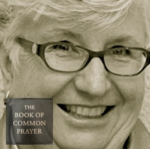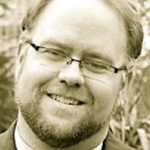We’re pleased to launch our third course in the TREC series (which stands for Task-Force for Reimagining the Episcopal Church) today, and this is one that will get us all thinking about God’s dream for God’s church. When we think of the Church as God’s family, including all its members –and indeed relying on all its members — we also need to think of how well we are following Jesus’ example of listening to and celebrating the dignity of every human being.
In six lessons, various thought leaders in the Episcopal Church urge us to explore the ideas of wholeness, balance, inclusion, and relationality. Stephanie Spellers, who teaches at General Theological Seminary, presents the idea of the Gospel Flower and explores the role of women in church leadership. Lisa Fortunato, who leads a congregation in Boston, invites us to consider how minority communities such as Latinos are made to feel by well-meant inclusion practices. Bradley Hauff, who leads a congregation in Philadelphia, explains how Native American theology can enrich our understanding of leadership. Author and teacher Eric Law offers suggestions for creating and sustaining relevant communities. Isaiah Brokenleg, a theology student, invites us to more thoughtfully and reverently consider our differences and the power of listening.
What’s exciting about TREC is that part of its commission is to “gather information and ideas from congregations, dioceses and provinces, and other interested individuals and organizations, including those not often heard from; engage other resources to provide information and guidance, and … invite all these constituencies to be joined in prayer as they engage in this common work of discernment.” Taking part in these ChurchNext courses is one way to engage in this process. (See our earlier blog post here.)
Here are links to all three courses 1) Reimagining Church Leadership, 2) Mission and Leadership, 3) Culture and Leadership
All who are interested in church leadership or in the Episcopal Church will find much of interest and use in these courses. Click here for more information or to register.




 Whatever we say about the cross, we are also saying about God. So what does the cross mean? What can it tell us about God? How can it help us approach, understand, and know God better? In Part III of this three-part series, David Lose introduces us to the three most popular theories, or ways of understanding the Cross, that Christians have turned to through the years.
Whatever we say about the cross, we are also saying about God. So what does the cross mean? What can it tell us about God? How can it help us approach, understand, and know God better? In Part III of this three-part series, David Lose introduces us to the three most popular theories, or ways of understanding the Cross, that Christians have turned to through the years.